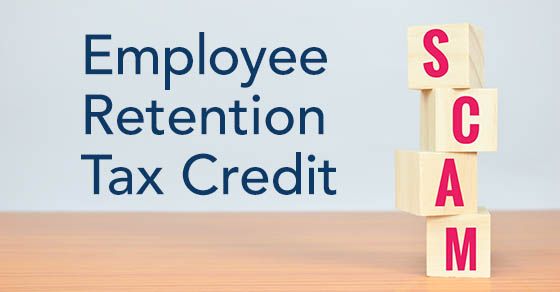Amidst bipartisan concern, the curtain is drawn on a distressing reality. Employee Retention Tax Credit Scams have increased, casting a shadow over relief efforts to aid struggling businesses during the pandemic.

Unveiling the Epidemic: Employee Retention Tax Credit Scams Exposed (Photo from: LinkedIn)
The Rise of Employee Retention Tax Credit Scams
In the wake of the COVID-19 pandemic, the Employee Retention Tax Credit (ERTC) emerged as a beacon of hope, incentivizing businesses to retain their workforce. However, what began as a lifeline swiftly became a breeding ground for fraud.
The Employee Retention Tax Credit Scams have reached unprecedented levels, with a whistleblower alleging that 95 percent of claims are fraudulent. The once well-intentioned program, designed to bolster struggling businesses, has been hijacked by opportunists seeking to exploit its loopholes for personal gain. Congress, spanning ideological divides, is mobilizing to dismantle the ERTC in light of rampant abuse. Aggressive marketing tactics and lax oversight have paved the way for a tsunami of fraudulent claims, threatening to engulf the program’s original purpose.
Unfortunately, the ERTC is a cautionary tale of good intentions gone wrong. Lawmakers are scrambling to end tax credit deception and restore integrity with bipartisan support.
READ ALSO: The Maximum Social Security Benefit For A Spouse In 2024 Is Here
The Road to Redemption
As Congress grapples with the fallout from Employee Retention Tax Credit Scams, efforts are underway to rectify the damage and forge a path forward. The proposed measures seek to curtail fraudulent activity by imposing stricter offender penalties and tightening eligibility criteria. Lawmakers aim to safeguard taxpayer funds and restore public trust in relief programs by bolstering oversight and accountability.
In tandem with efforts to combat fraud, lawmakers are redirecting resources towards initiatives with tangible benefits, such as expanding the child tax credit for low-income families. This dual approach reflects a commitment to fostering economic recovery while upholding fiscal responsibility.
READ ALSO: The US Economic Recovery Probably Depends On A Quick-Witted Fed































